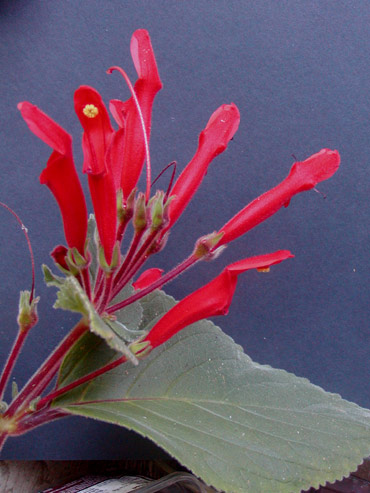Sinningia hatschbachii x glazioviana
We have to say, right off the bat, that this is not a world-beater hybrid. It is mainly of interest because its parents have such different foliage and blooming habits. On the other hand, the flowers (as can be seen by the picture) are quite similar to those of the parents.
I crossed the two parents for the usual reason: they were both in bloom. It's not easy to make crosses with S. hatschbachii, because it blooms later than almost any other sinningia, but S. glazioviana happened to be in bloom then, so here we are.
This clash of blooming behavior will make for an interesting test. The hybrid seedlings are coming into bloom in June 2007, just about diametrically opposite the time of year S. hatschbachii blooms (unless it's in the southern hemisphere).
